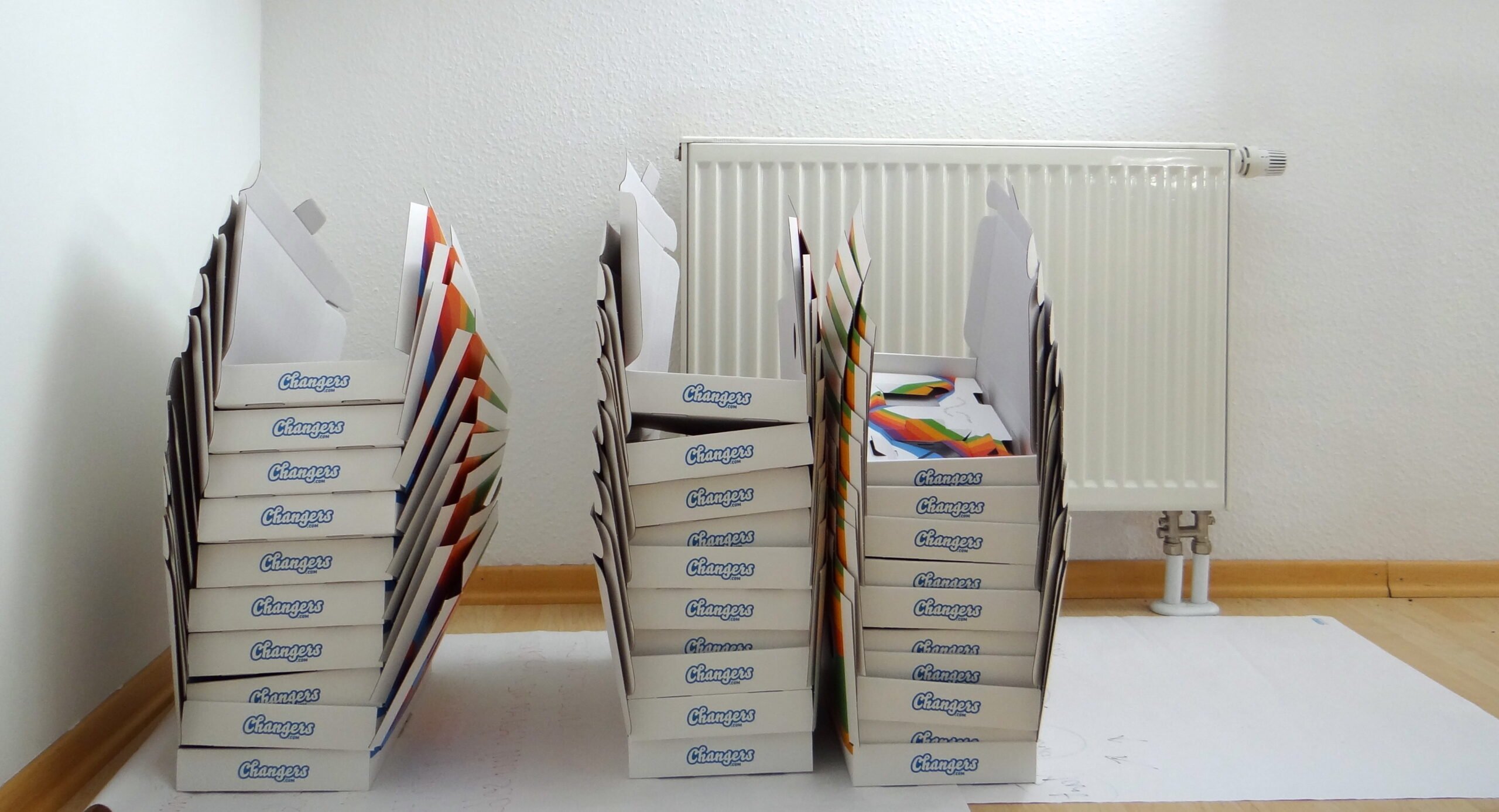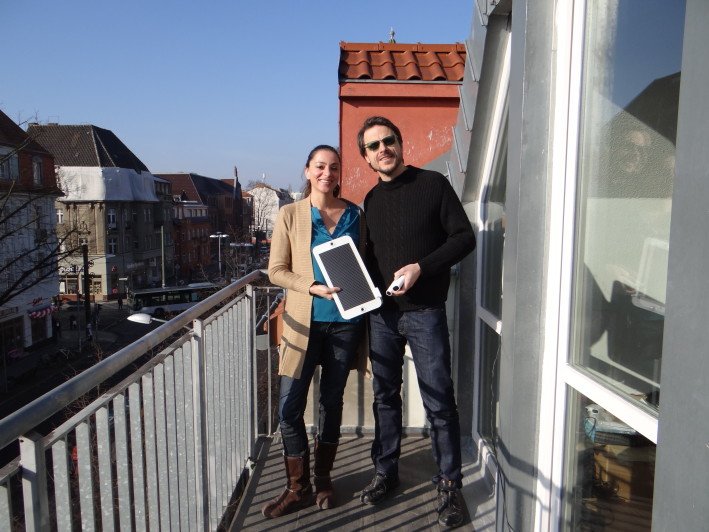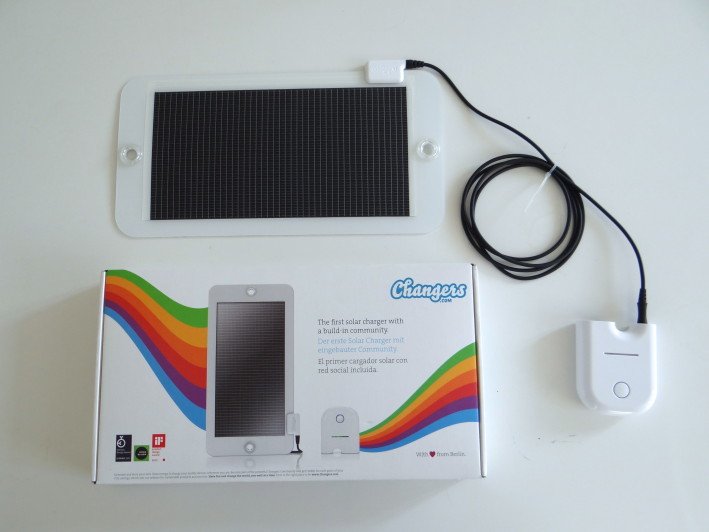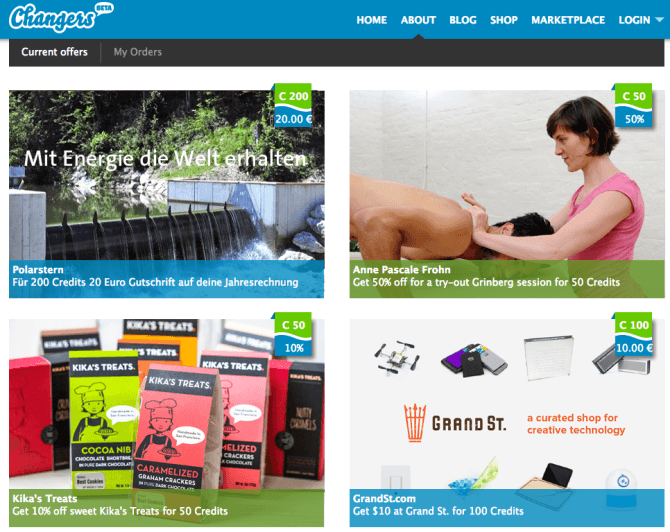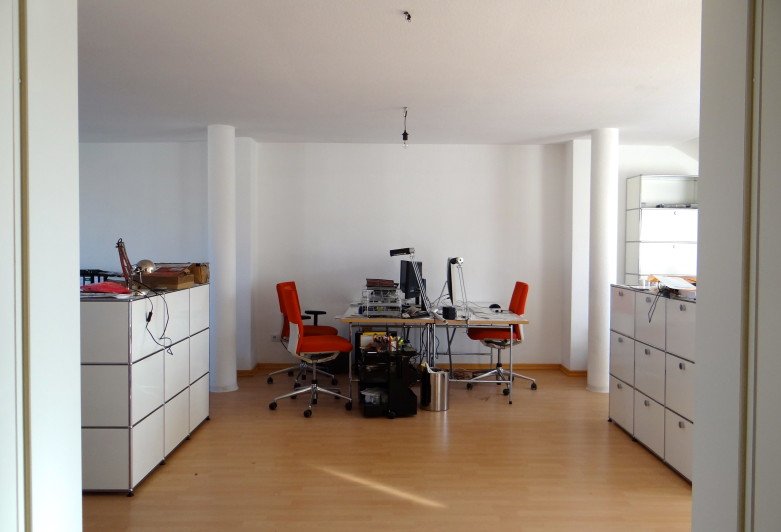Think about the last time you were on the road and your phone battery died. Did you get withdrawal symptoms within minutes of being off the grid? Was it a race to get home to your charger?
It’s becoming increasingly difficult in the daily grind to recognize our vast reliance on digital devices until the moment we’re disconnected from them. Not only that, but the pervasiveness of these technologies also seems to have desensitised us to the amount of energy required to power them as well as their impact on the environment.
A report by Mark Mills, CEO of Digital Power Group, a tech advisory firm, in August 2013 suggested that, on average, an iPhone uses more energy than a mid-size refrigerator that qualifies for the Environmental Protection Agency’s energy star rating.
The study ignited a heated discussion, but, it seems, researchers are still divided about the carbon footprint of a smartphone.
Changing the game
“At the moment, we’re alienated from energy sources. Energy comes from the block, it’s always available. We are not in contact with energy production ... we are consumers,” said Markus Schulz, CEO and co-founder of social energy marketplace Changers.
Based near Berlin, Changers is a startup that offers a system for users to produce their own energy, visualise energy-saving behaviours and convert them into credits that can be used to redeem sustainable products and services.
“With Changers, you change from being a consumer to being a producer,” Schulz adds emphatically.
“What we’re trying to do with Changers is raise consciousness about the kind of things we typically don’t think about when when using our devices. For example, how many watt-hours does my phone need in order for it to be charged? How long do I need to produce this energy?”, explained Changers co-founder Daniela Schiffer.
“It’s about inviting people to change their behaviour in a playful and positive manner.”
It’s a noble vision, which Schulz and Schiffer (pictured above) are not ready to let go of despite the company’s tough run in the last couple of years. First launched in October 2011, Changers faced bankruptcy a couple of months later but bounced back with a relaunch the following year.
Earlier this year, it closed a $1.5 million Series A financing round led by regional development fund BFB Frühphasenfonds Brandenburg in participation with clean energy solutions provider Heliocentris.
Following its latest funding boost, I paid a visit to the newly inhabited Changers office – located in Potsdam, a city just outside of Berlin – and spoke to both Schulz and Schiffer about their ambitious mission, the entrepreneurial roller-coaster ride and what’s next for the eco-conscious startup.
Freeing yourself from the grid
With the aim of motivating people to change their behaviour in an effort to combat climate change, Changers is best known for its starter kit, which includes a portable solar panel and an intelligent solar battery that can be used to power USB-equipped devices such as mobile phones and tablets. Together, the hardware combo can generate up to four watts per hour and the battery can store 16 watts, which can charge your iPhone twice.
At €149, it’s not a cheap buy – especially since there are smaller and sleeker solar power chargers selling for as little as €39.95 – but it’s the only option out there that comes with an incentivised social layer as well as a proprietary rewarding system.
When connected to your profile on Changers.com, the battery uploads data on the amount of solar energy you produced as well as the resultant CO2 savings. The ability to measure and visualize this type of information plays an important role in transforming our relationship with energy.
A better understanding of how energy is produced and being aware of how much time is necessary to charge our devices has the potential to change the way we perceive our environmental resources and, in turn, induce behavioural change.
Empowering change, one credit at a time
A crucial aspect of Changers is its community, which allows users to share and compare their energy stats with friends.
Schiffer said connecting the hardware component with a social element helps to encourage energy-saving behaviour and create healthy competition towards a good cause. The startup has also integrated several gamification features that rank users and award badges for meeting energy targets, which are proving to be popular within the community.
But the idea goes beyond that.
“The main product of Changers is the credit, which is a currency that is based on your personal behaviour and your contribution to society,” explained Schulz. “We filed a patent for the production of this currency in 2010 and it was granted to us in July 2013. What is patented, is the way in which we create the currency. Our goal is to introduce this currency, which can be produced via your environmental-friendly behaviour, to the world.”
So what constitutes a credit?
“For us, one watt-hour of self-produced green energy is one credit. It is also half a gram in CO2 saving, on average, which is a setting from the International Energy Agency ... it’s kind of like a mining system,” Schulz answered.
Users can redeem credits for sustainable products and services from partnering companies on the Changers marketplace – and this is a key point of differentiation for the company.
Though the current selection of offers is fairly limited and many of them are available only in Germany, the team hopes to work with more commercial partners that are aligned with the Changers philosophy.
In the meantime, here’s a taste of its marketplace offers: for 50 credits, you can currently get a $5 voucher to spend at eco-conscious lifestyle goods store Holstee, for 200 credits a €29 discount for car-sharing service DriveNow, and for 2000 credits you can get a four-bedroom stay for one week in a Swiss resort that makes “a responsible and sustainable approach to resources and environments a priority”.
Overcoming adversity and trusting the Changers vision
After four years of working together at Schulz’s communications design agency, the entrepreneurial pair started Changers in 2010 with the hopes of driving environmental change through technological development.
At the time, the fledgling startup was lucky enough to secure seed funding of “a couple of million dollars” from Centrotherm Photovoltaics, a large German solar company.
The team landed the domain Changers.com; although Schiffer didn’t disclose the details of the deal, she said it was a tough negotiation. Additionally, its launch in October 2011 garnered a lot of international buzz.
But things took a turn for the worse a couple of months later. After Japan’s Tōhoku earthquake that year, many solar companies, including the startup’s main investor, were left in disarray, said Schulz.
Faced with financial difficulties due to investor woes, Changers declared bankruptcy at the end of 2011.
In spite of the roadblocks, Schulz and Schiffer weren’t ready to give up on the idea and they continued to develop both the hardware and software components of the solar-charging system – why?
“When we presented the platform at the Web 2.0 Summit in San Francisco earlier in 2011, we saw that there was a lot of interest in what we were doing. We also had a lot of pre-sales, which is one of the reasons we said, ‘We’re not going to stop at this moment,’” recalled Schiffer.
By March 2012, the entrepreneurial duo alongside Fast Europe Ventures founder Kushtrim Xhakli and former Heliatek CEO Andreas Rückemann founded Blacksquared GmbH and successfully bought back all the assets of the insolvent company.
While bootstrapping the new Changers reincarnation, the startup soft-launched its marketplace – a new addition to the original concept – in October 2012.
With its fresh funding announcement, Changers is off to a good start for 2014. The startup just moved into its new office and is working on taking the platform to the next level.
Slow growth and shifting perceptions
Uncertainty is an inevitable part of building a startup and the Changers journey seems to be a prime example of that – so what are some of most important lessons the two co-founders have come away with thus far?
“If you want to grow and develop a product quickly, you don’t need to grow your company exponentially. One thing I would have definitely done differently is not grow the employees as fast as we did – within four or five months we grew from two people to about 26 employees,” responded Schiffer.
“That’s something that we’re doing totally different now.”
It's a mistake that seems to be plaguing tech startups more and more. At the moment, the team behind Changers – including Schulz and Schiffer – consists of four people.
“It’s all about trusting your own strengths,” Schulz chimed in. “As a founder, you can do a lot of things and you don’t need that much. Trust your guts.”
The company has reportedly sold more than 5,000 Changers Starter Kits to consumers who have collectively generated more than 640 kWh and saved over 6,000 kg of CO2 in the last two years. It also claims that thousands of people around the world are using Changers, but to really make a difference, the team will need to further grow its user base.
As for the future, the company is looking to expand, particularly in the US and Middle East, and currently developing a new platform that would broaden its rewarding system to include not only energy-saving behaviour but all sustainable behaviours.
“We want to walk away from being only seen as a solar or energy company and work towards being a platform for sustainable behaviour,” said Schiffer.
It’s a big feat, but if Schulz and Schiffer have shown anything, it’s their ability to remain resolute to the Changers vision.

